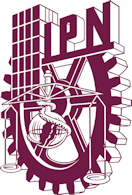Por favor, use este identificador para citar o enlazar este ítem:
http://repositoriodigital.ipn.mx/handle/123456789/11672| Título : | Evaluación del aprendizaje del cálculo desde una perspectiva constructivista |
| Autor : | Dubinsky, Ed |
| Fecha de publicación : | 16-ene-2013 |
| Descripción : | School learning in general and mathematics learning in particular, constitute problems that researchers have been dealing with since several decades ago. Several different paradigms have arisen related to mathematics learning; thus, from their correspondent perspectives, they search for elements to address this problem. One of these paradigms related to the occurrence of mathematics learning is pro- posed by rumec⁴ research group. At the interior of this group, a theory is generated about mathematics learning (apos Theory⁵), which lays its foundations in Jean Piaget’s cognitive theory. Hence, the mathematical knowledge of an individual is defined as his tendency to respond to perceived mathematical problems by reflecting on them and their solutions in a social context, and by means of the mental construction or reconstruction of mathematical actions, processes and objects, which get organized in schemas in order to use them in dealing with such problems. That is to say, the mathematical knowledge of an individual consists of his tendency to respond according to the cognitive structures that he has elaborated in relation to a particular concept. The desire to put this theory into practice generates a great amount of work to create the ace⁶ instructional design. In the elaboration of this instructional design, the genetic decomposition plays a fundamental role allowing researchers to describe a possible access route to the understanding of such mathematical concepts. One of the researchers’ goals is to measure the effectiveness of the structural design to help students apprehend the mathematical concepts. To achieve it, they are designing an evaluation methodology that is expected to describe the students’ cognitive situation accurately. This evaluation differs substantially from the traditional evaluation methodology due to the proposed innovations. Thus, the significance of this educational proposal is based, on one hand, on its putting into practice in the classroom and, on the other hand, in the measurement of its effectiveness. However, a question arises within the group: does the proposed evaluation methodology really describe the students’ cognitive situation? The former question is the starting point for a research scheme that aims at verifying the effectiveness of the proposed evaluation methodology. On the other hand, there is the “clinical interview” or thorough interview, used to investigate accurately about an individual’s knowledge of a given topic, so that an adequate design, application and analysis of the questions and answers will allow making inferences about his cognitive situation. However, this method is not the ideal one to assess the students’ cognitive situation because it is not practical. In other words, it requires too much time to determine the status of the students’ cognitive situation. Thus, the question of the present research is: Does the students’ evaluation by means of the ace instructional treatment generates the same assessment that the generated by personalized interviews? ⁴ Research in Undergraduate Mathematics Education. ⁵ Actions, Processes, Objects and Schemas. ⁶ Computer activities, Discussions and Exercises. If so, we can trust that the use a practical evaluation methodology will determine the students’ cognitive situation. Hence, the present work will report the results obtained during the research. Before reporting the results, I will proceed to context research with the aim of understanding it. |
| URI : | http://www.repositoriodigital.ipn.mx/handle/123456789/11672 |
| Otros identificadores : | http://hdl.handle.net/123456789/1190 |
| Aparece en las colecciones: | Doctorado |
Ficheros en este ítem:
| Fichero | Descripción | Tamaño | Formato | |
|---|---|---|---|---|
| vizcaino_2004.pdf | 1.14 MB | Adobe PDF | Visualizar/Abrir |
Los ítems de DSpace están protegidos por copyright, con todos los derechos reservados, a menos que se indique lo contrario.

